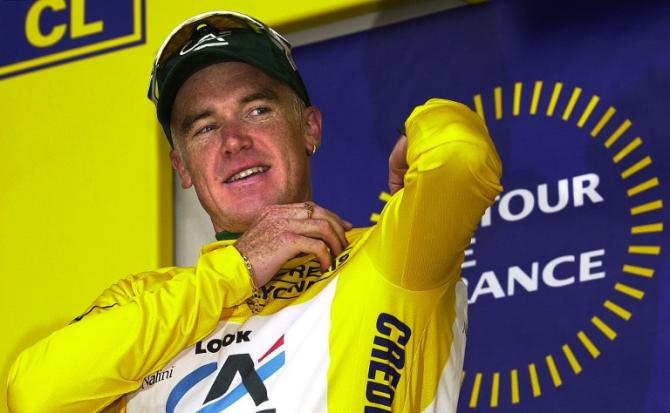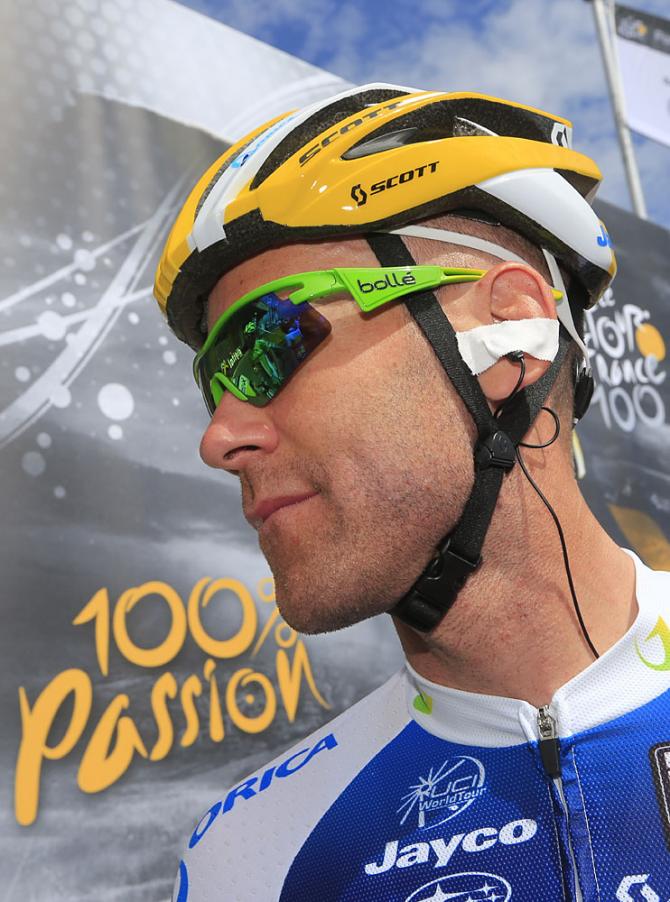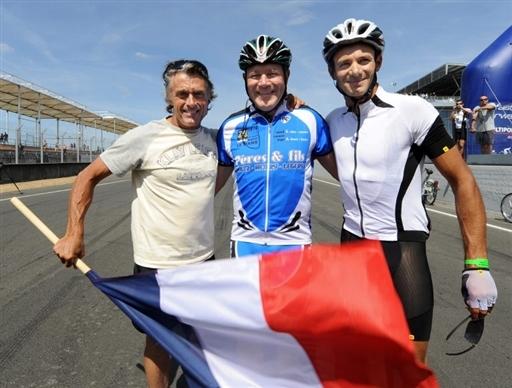O'Grady EPO use a reflection of cycling at the time, says Legeay
Former GAN manager on "a black period for cycling"



Former GAN manager Roger Legeay has expressed his disappointment at the news that Stuart O’Grady used EPO ahead of the 1998 Tour de France but said that the Australian’s story is simply indicative of the general state of cycling at the time.
A French Senate Commission report on doping released on Wednesday included a list of retrospective tests carried out on samples from the 1998 Tour, with O’Grady and GAN teammate Frédéric Moncassin both named as having returned suspect samples.
O’Grady suddenly announced his retirement from cycling on Monday and confessed to doping in an interview with the Herald Sun on Wednesday. He claimed that he had sourced and purchased EPO himself ahead of the 1998 Tour, where he held the yellow jersey and won a stage as a 24-year-old, but never doped again after news of the Festina affair broke during the race.
“It’s surprising and disappointing but it was the boy’s own personal initiative,” Legeay told Cyclingnews. “The riders were warned about the dangers and told what they couldn’t do. After that, the riders took their own individual decisions. It demonstrates how things were not good at the time.”
Legeay, who is now head of the MPCC (Movement for Credible Cycling), denied that there was an organised doping programme in place on his team, which he managed from 1986 to 2008 under the sponsorship of Peugeot, Z, GAN and Crédit Agricole.
“No, I didn’t know anything at all and you can see that from what the riders are saying now – they did these things on an individual basis. These were individual decisions that were the reality of the era,” Legeay said. “The management of the team had completely clear dialogues with the riders and with the sponsors too, and they were told in no uncertain terms that if they were positive they would be fired.
“Clearly, we weren’t informed about individual decisions. It was nothing to do with us. Our partners always made it clear that if there was organised doping on the team, then they would cease their sponsorship. With us, if a rider tested positive, he was fired.”
The latest race content, interviews, features, reviews and expert buying guides, direct to your inbox!
O’Grady turned professional with GAN in 1995 and stayed with Legeay’s team until the end of 2003. He later raced for Cofidis, CSC, Leopard Trek and GreenEdge, winning Paris-Roubaix in 2007 and starting 17 consecutive Tours de France.
Legeay refused to be drawn on whether it was credible that O’Grady had, as he claims, doped himself for just two weeks of a professional career that spanned 19 seasons.
“He’s the one who is telling his story,” Legeay said. “I don’t have any opinion on that. He’s the one who knows how he took EPO, how he went across the border alone and looked for the products. That’s what he’s said.”
The French Senate Commission named 18 riders as having tested positive for EPO at the 1998 Tour with a further 13 – including GAN’s O’Grady and Moncassin – listed as returning “suspect” samples. Incidentally, the list of positive riders also includes Laurent Desbiens, then of Cofidis but who two years previously had been fired by GAN along with the late Philippe Gaumont and team doctor Patrick Nédelec after he tested positive for nandrolone.
“There’s nothing special in this affair because we already knew about many of the riders on the list, as they had already confessed or been sanctioned. It was a black period for cycling because the anti-doping controls couldn’t detect EPO but that’s hardly a scoop,” Legeay said.
“As far back 1996, along with Jean-Marie Leblanc and Daniel Baal, we wrote to the sports ministry, the UCI and the IOC saying that something needed to be done to detect EPO, and we asked for blood testing.
“It’s not a scoop that they were riders positive for EPO at the 1998 Tour de France but now things are much, much better. You can’t compare the era of 1998 with today in terms of anti-doping.”
MPCC
Head of the MPCC since its foundation in 2007, Legeay was keen to stress the advances that have been made in the fight against doping in the fifteen years since the Festina Affair of 1998.
“We have blood tests, the biological passport, whereabouts, out-of-competition testing and with the MPCC we carry out additional cortisol testing,” he said. “So there’s no comparison between now and 1998. Today, the fight against doping is much more precise even if you can never eradicate it completely.”
Legeay said that he was heartened by what he saw at the 2013 Tour de France. “I’m optimistic, albeit with all of the normal reservations you would have in any sport,” he said. “But we’re the sport that does the most testing of all and right now, I want to believe that the 2013 Tour was a good Tour.”
The Tour was won by a rider whose the team is not part of the MPCC, however, with Chris Froome (Sky) carrying yellow to Paris. Speaking on the eve of Paris-Nice in March, Legeay had been critical of Sky’s decision not to sign up to the MPCC, whose measures include additional testing for corticoids and the refusal to field riders holding Therapeutic Use Exemptions for cortisone.
“I’ve spoken about it with Dave Brailsford. He says they want to do more than the MPCC does because they don’t want anyone on the team who has ever had anything to do with doping,” Legeay said. “It’s sure that Sky are doing plenty of things and I have no problem with that, but I think we could all do this together to show to the public that our sport is credible. I’m disappointed because I wish Sky was part of the MPCC and working with us, maybe helping us to improve even more. Why not?
“All teams are welcome in our movement. If all of the teams at the start of the Tour were part of the MPCC and operating under our rules, everything would be more credible.”

Barry Ryan was Head of Features at Cyclingnews. He has covered professional cycling since 2010, reporting from the Tour de France, Giro d’Italia and events from Argentina to Japan. His writing has appeared in The Independent, Procycling and Cycling Plus. He is the author of The Ascent: Sean Kelly, Stephen Roche and the Rise of Irish Cycling’s Golden Generation, published by Gill Books.